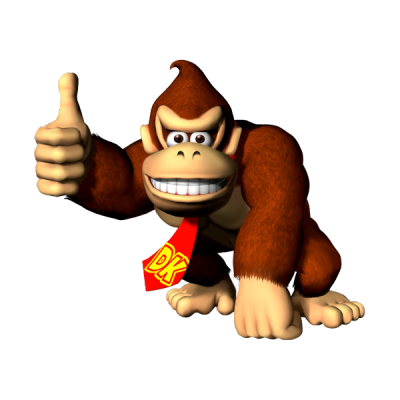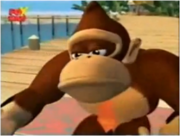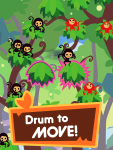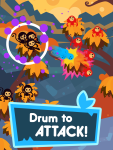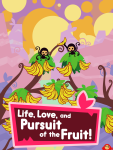ados – v. to pour your drink on a laptop being used in a rude fashion
medespu
medespu – n. a millionaire who lives in a Wal-Mart parking lot
conquten
conquten – v. to douse a fire in a bar with the watered down drinks they serve
couida
couida – n. your favorite bar that burned down
pasne
pasne – v. to rudely listen to crap on your laptop without headphones in a public crowded place
miada
miada – n. a warehouse full of folders organized in the worst way possible
tejeda
tejeda – v. to use a huge manila envelope to transport a very small flash drive.
carranz
carranz – n. a carrot that is able to connect to your Wi-Fi
viuna
viuna – n. the act of robbing a store that only ends with the result of a security guard being beaten up and everyone running away and that was totally not according to the plan at all
dacacc
dacacc – n. someone who actively avoids all of your really important e-mails
nebijk
nebijk – v. to unceremoniously pin less-than-important information on a cork board
clist
clist – n. a two-sided disc sleeve cover that allows you to put two discs in the same sleeve without risk of having them scratch the other disc
benello
benello – v. to clench your rectum in such a way that you prevent shit from falling out of it
timatue
timatue – n. an old lady picking her nose in her car, thinking that no one is recording her doing it, but someone actually is
Jungle Rumble: Freedom, Happiness, and Bananas (PSVita) Review
Developer/Publisher: Disco Pixel || Overall: 6.0
When Dave first contacted me to play a rhythm-based game featuring orangutans searching for their stolen stash of bananas, I was more than excited to brush off my old Jungle Beat Drums to play Donkey Konga 3: The Search for More Hard-to-Find Wii U Accessories. I was prepared to camp out for the official attachment that would end up being scalped left and right, due to limited supply from Nintendo, all to play a game that some have been waiting nine years to play. Then Dave told me that the game was actually called Jungle Rumble: Freedom, Happiness and Bananas, that it was on the PlayStation Vita, and it had nothing to do with the loveable banana eating kidnapper …
My before and after pictures, respectively.
Jungle Rumble: Freedom, Happiness and Bananas is an iOS port, featuring some extra content, of a rhythm-based action game that challenges you with reclaiming the stolen bananas of the Mofungo tribe from an aggressively red-colored rival tribe. The game uses a four-beat rhythm to have you perform tasks from moving, to attacking, and to ultimately defeating the rival tribe and reclaiming your tribe’s bananas. Overall, playing to the rhythm will ultimately decide whether your teams of simply-drawn monkeys succeeds or if the opposing team of simply-drawn monkeys does so instead.
Graphically, Jungle Rumbles isn’t really much to look at in action. While the attempt to give the game a particular style is there, it falls flat before achieving any notable flare. What’s left is a rather simple art style that tries it’s best to be simple and cute, but does not possess the small intricacies to achieve that goal. Don’t get me wrong, the game is nice enough to look at, but it appears rather stiff and lifeless when in action. The monkeys seem to perform the same repetitive actions ad nauseam for whatever four-beat command you manage to perform to the point of monotony. It’s a shame too, with a few more variations and perhaps a creative idle animation the art could have been much more pleasant to look at.
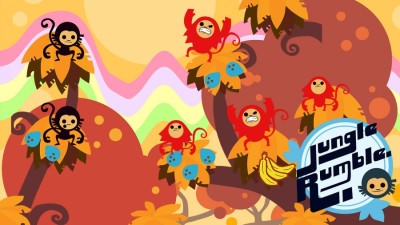
Like in any good game of Red Light, Green Light, it only screws up while in motion
The music in Jungle Rumble is serviceable, which would be alright if it weren’t for the fact that music is sorta the most important part of rhythm games. While games like Lumines are remembered for their sweet techno beat, games like Dance Dance Revolution have catchy J-Pop, and even Donkey Konga tickles at the nostalgia bones by playing through classic Nintendo beats, Jungle Rumble seems content with providing a four-beat-rhythm that simply repeats infinitely and calls it music. To add (or subtract), the rhythm itself hardly changes between levels to any noticeable degree. On a better note, the meeps of the monkeys, the sound of a coconut hitting its mark and other sound effects add charm where the art and music does not.
Gameplay-wise, Jungle Rumble has the honor of using the Vita’s least used gameplay set-ups, which involves turning the Vita vertical, to good effect. While this set-up took a bit to get used too, I found it particularly useful in the game’s many scrolling levels to have the screen longer as opposed to wider. The game itself is controlled completely with touchscreen commands and its manipulations through the game’s four-beat rhythm. For example, to move from tree to tree requires the simple alteration between your starting tree and the tree you wish to move to. To throw a coconut requires you touch yourself three times (hehe) and the enemy once. Moving two spaces is much like moving one but requires an added touch on the third beat and a final touch to the far tree you wish to land on. Unfortunately, this is about as complicated as the game gets and I found myself expecting more when there was nothing left. Furthermore, the fact that each maneuver requires you to adhere to the previously mentioned 4 beat rhythm made me constantly get further out of tempo as I had to wait for the rhythm to repeat itself before starting another command. This was only further hindered by the fact that someone thought it would be a good idea for the game’s visual helper, colored circles and a tiny ball that bounced to the levels beat, to disappear after a few successful repetitions, making it the harder to get back into rhythm as I waited for it to reappear. Thankfully, I didn’t have to deal with that for long.
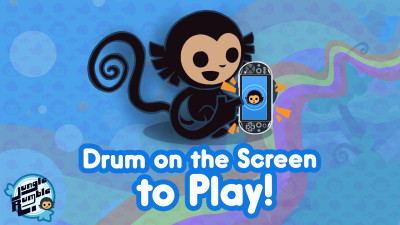
If playing games in new and interesting ways scares you, then stare at the face of FEAR!!!
Jungle Rumble, while simple, is also very short; the five dollar prince tag will get you about two hours of gameplay. The content consists of three worlds filled with various stages that are easy to complete. While the game’s grading mechanic of a bronze, silver, and gold medal offer some replay value, overall it doesn’t add much more time to the already short game. Though, if two-hours-plus of content justifies five dollars is up to you.
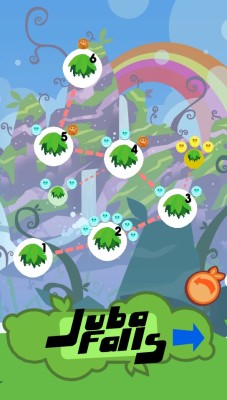
You’re looking at about 1/3rd of the game right here.
Overall, Jungle Rumble: Freedom, Happiness and Bananas feels like a game that had a lot of good ideas that never truly came to fruition. The game never really seems to hit its stride, whether it is the art style that only looks charming when still, the rather forgettable “music,” the sometimes frustrating 4-beat commands or just the game’s short length. While not a horrible game, it perhaps could prove useful as a way to break into rhythm games for the uninitiated. Personally, however, Jungle Rumble: Freedom, Happiness and Bananas is not something I would look forward to.
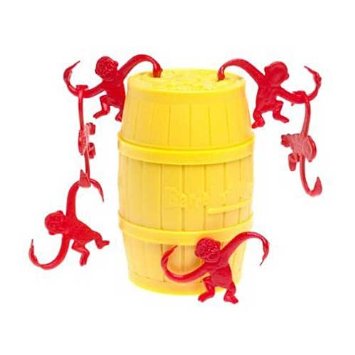
More like a Barrel of “Meh..” for me.
When not writing reviews as Unnamedhero, Eduardo Luquin can be reached at unnamedheromk13@gmail.com.

